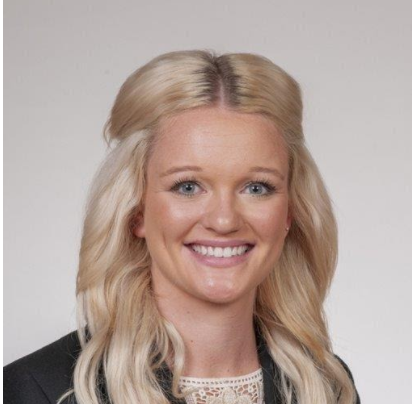Caitlyn Kohake, a first-year master’s student in anesthesia at UMKC, knows first-hand how much chaos COVID-19 can cause, especially for students who work at restaurants.
Kohake watched as her clinical rotations disappeared and wondered how that would affect earning her degree. Then the restaurant where she worked, Maloney’s Sports Bar and Grill in Overland Park, closed its doors.
“I was unsure what this meant for my education and lifestyle,” Kohake said. ”I was never nervous about becoming ill, but was anxious about all of the changes that were happening in the world so quickly.”
UNews spoke to several students working in the service industry amidst all the chaos of COVID-19. When asked how quickly the virus affected each student’s restaurant, the answers varied because each restaurant faced its own challenges.
“It was not more than two days after we had been moved to online classes that we were shut down to carry-out only at Maloney’s,” Kohake said. “This meant that only one or two employees were working daily, and everybody else was unable to work. This was stressful for many, as we had no clue when we would be able to return.”
Brianna Trivette, UMKC sophomore in health and sciences, worked at Johnny’s Tavern in Shawnee.
“Johnny’s did everything it possibly could to keep doors open,” Trivette said. “But I remember the night KC announced the closure of all non-essential businesses and realized that they were no longer in control of what happened next. They did continue to do curbside service, but clearly it didn’t take an entire staff to work those hours.”
For many industry workers, applying for unemployment was a burden in itself.
“The unemployment system was one of the most challenging things I had navigated. It took me months to get my back pay due to being unable to get through to the office,” Kohake said. “I spent days and days making over 100 phone calls a day to speak with somebody. I finally was able to and did end up receiving it, but it was very stressful.”
“I did it that night and thankfully, never had to deal with the long wait times or missed payments,” said Trivette. “I was extremely lucky.”
Alex Tyler, a junior psychology student at UMKC and another worker at Mahoney’s, mentioned there were many tedious changes Maloney’s made to ensure a safer environment.
“We are typically sanitary anyways, but we use sanitizer buckets and wipe down everything after it’s been in contact with a customer,” Tyler said. “We are also now required to wear masks again at Maloney’s. A big difference I’ve noticed is that we stopped handing out menus. We use the QR code scanners now to pull up an online menu that people can look at. We also have to section off and combine certain tables so that people are distanced somewhat.”
Each student said they felt safer with the precautions their restaurant was taking, and that they didn’t take a large pay cut. They all agreed that even though there were fewer customers, those customers tended to be more generous with tips.
“I trust Maloney’s to keep everyone as safe and as healthy as they can be, and for that reason I feel safe,” Tyler said. “Especially now that we’re wearing masks again, I don’t feel particularly at risk just because I’m an industry worker. I’m just lucky to still have my job and to be healthy. Some people aren’t able to say that.”
Since closing and reopening twice, Maloney’s management began testing each staff member before they returned to work, and even paid them for the time off in between.
Most customers appreciated the changes, while others simply didn’t grasp the importance of what industry workers were doing to keep them safe.
“The regulars are so grateful for the reopening,” Kohake said. “They follow the rules in place because they had missed the place so much when we were shut down. There are some customers who are rude and not patient or make comments, but for the most part everyone is very understanding. From my experience, customers have been more generous than before, knowing everything we all went through.”








